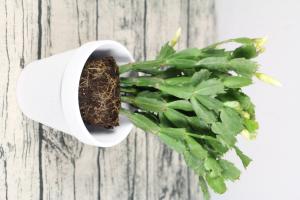How to Water Orchid Plants
Orchids are a beloved flowering plant that requires a bit of extra care, especially when it comes to watering. Overwatering can lead to root rot, while underwatering will cause the orchid to wither and die. Here are some tips on how to water orchid plants properly.
Watering Frequency
The frequency of watering your orchid will depend on several factors, such as the type of orchid, the potting medium, the temperature and humidity of the environment, and the amount of light it receives. Typically, orchids should be watered once a week, but some varieties may require more or less frequent watering.
Watering Technique
The best way to water an orchid is to gently pour water over the entire potting medium until the water comes out of the drainage holes at the bottom of the container. Let the excess water drain away before returning the orchid to its usual spot. Avoid getting water on the leaves or flowers, as this can lead to damage and disease.
Potting Medium
The type of potting medium you use for your orchid can affect how often and how much you should water it. If the medium contains more organic material, such as sphagnum moss or bark, it will retain more moisture and require less frequent watering. A more porous mix, such as volcanic rock or perlite, will dry out faster and require more frequent watering.
Humidity
Most orchids thrive in higher humidity levels than our indoor environments provide. You can increase humidity by placing a tray of water near the orchid or misting the foliage with water. Be careful not to get water in the crown of the plant, as this can cause rot. You can also invest in a humidifier to keep the air around your orchid at the right moisture level.
Temperature
The temperature can affect your orchid's water needs. In warmer temperatures, the orchid may require more frequent watering, while cooler temperatures may mean less watering. It is also important to avoid sudden changes in temperature, as this can shock the plant and cause damage.
Conclusion
By following these tips on how to water orchid plants, you can help your orchid thrive and bloom. Remember to always check the moisture levels of the potting medium before watering and allow excess water to drain away. With proper care, your orchid will reward you with beautiful blooms for years to come.

 how many times do yo...
how many times do yo... how many planted tre...
how many planted tre... how many pine trees ...
how many pine trees ... how many pecan trees...
how many pecan trees... how many plants comp...
how many plants comp... how many plants can ...
how many plants can ... how many plants and ...
how many plants and ... how many pepper plan...
how many pepper plan...































